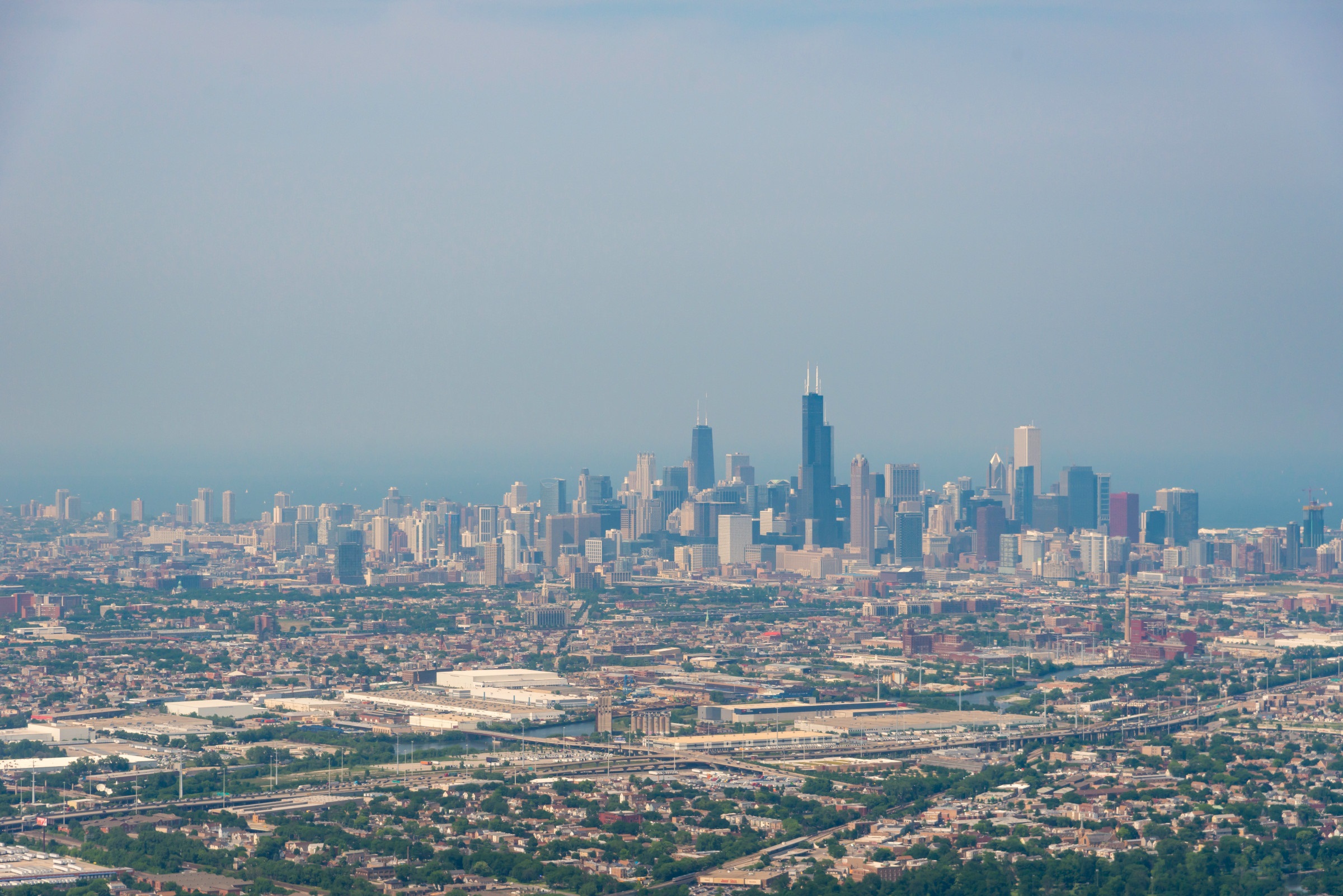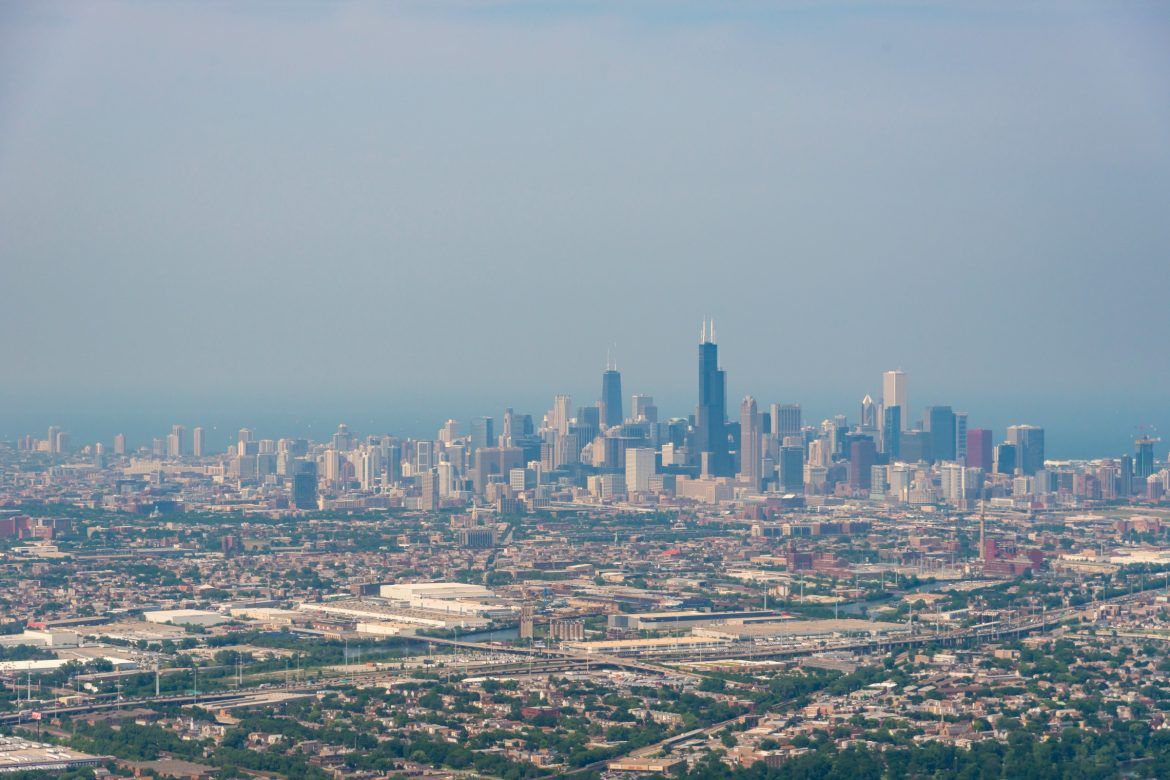While there are myriad opportunities for leaders to move Chicago from pollution to prosperity, the NRDC Action Fund is prioritizing three policies that the city can enact in the months ahead.
Seventy years ago, novelist Nelson Algren famously wrote about Chicago that there was “never a lovely so real.” Today, the environmental challenges facing Chicago are all too real. America’s third-largest city has a long legacy of environmental injustice, more toxic lead pipes than any other city in the country, and buildings reliant on the fossil fuels that harm Chicagoans’ health and contribute to the climate crisis. Mayor Brandon Johnson has articulated a bold agenda to run toward these challenges, not from them. Likewise, the Chicago City Council has become concurrently more progressive and more serious about enacting policies that put the health of Chicago’s people and environment first. While there are myriad opportunities for Chicago’s leaders to move our city from pollution to progress, the NRDC Action Fund is prioritizing the following three policies that the city can enact in the months ahead. The decisions that Mayor Johnson and the Chicago City Council make this year will impact Chicago for decades to come.
Passing a cumulative impacts ordinance
Chicago is the birthplace of the environmental justice movement. In the 1970s, Hazel M. Johnson stood up for what was right and demanded justice for the residents of Altgeld Gardens, a public housing project on the Southeast Side that was built on a landfill and surrounded by pollution. Today, that legacy is being carried forward by a new generation of Chicagoans who are pursuing justice for their communities. Two years ago, in the fight against the relocation of the polluting metal shredder General Iron to a Southeast Side neighborhood already overburdened by heavy industry and poor air quality, three Chicago environmental justice (EJ) organizations filed a civil rights complaint with the U.S. Department of Housing and Urban Development (HUD). Earlier this year, HUD and the city of Chicago entered into a voluntary settlement agreement that recognized Chicago’s history of discriminatory zoning practices and set a path forward that includes the completion of a cumulative impacts assessment and a whole-of-government approach to updating zoning and permitting processes. While the federal government can work with the city to take steps toward protecting its residents’ civil rights, it cannot compel the Chicago City Council or any legislative body to pass the laws that community leaders living in EJ communities have long called for. The NRDC Action Fund is working in solidarity with environmental justice leaders in Chicago to lobby for the passage of a cumulative impacts ordinance that would ensure communities have a say in the decisions that impact their health and civil rights.
Getting the lead out
Chicago has more than 400,000 lead service lines, the pipes through which drinking water flows into our homes and other buildings. That gives us the dubious distinction of having more toxic lead service lines than any other city in the country. Lead in drinking water is a poisonous neurotoxin that is especially dangerous for children and seniors. As my colleague Chakena Perry recently wrote for Harvard Public Health, clean water is also “a matter of life and death for Black mothers and their babies.”
Unfortunately, Chicago has moved at a snail’s pace in replacing its lead service lines. The good news is that the Bipartisan Infrastructure Law that President Biden championed provides $15 billion for cities and states to remove their lead pipes. Under the revised U.S. Environmental Protection Agency funding formula, Illinois will receive more than $1 billion in federal funding over the next five years to get lead pipes out of the ground. Not only will this help remove lead pipes but it will also create and support good union jobs for plumbers, laborers, and operating engineers.
Mayor Johnson has pledged to enact a “Green New Deal for Water,” which includes the ambitious goal of removing 10 percent of Chicago’s lead pipes by 2027. To ensure this work is done equitably and expeditiously, the city should pass an ordinance similar to the law Newark, New Jersey, passed to replace its lead pipes at no cost to residents. The Action Fund has been educating members of the city council about the scope of the problem and its solutions, and we will continue working with city leaders to get the lead out until the job is done.
Passing a clean and affordable buildings ordinance
Cities from coast to coast—including Boston, New York City, Los Angeles, and San Francisco—have already adopted policies to ensure new buildings are free from polluting methane gas. It’s past time for Chicago to pass a clean and affordable buildings ordinance that will help ensure its residents are not breathing polluting gas inside their homes that can cause asthma, cancer, and heart disease; lower skyrocketing energy bills that pay to lock in fossil fuel infrastructure that we don’t need; create thousands of good-paying jobs; and address the single-largest source of carbon emissions in the city. The NRDC Action Fund has been working for years alongside our coalition partners to get this policy passed, and we will continue to lobby the city to get this monumentally important policy over the finish line.
Looking forward
There are myriad other areas where the Johnson administration must make environmental progress, from reducing single-use plastics and phasing out polystyrene foam to planting trees in communities that have too few to preparing for climate shocks, including increased flooding and heat waves, to reconstituting and empowering a Department of Environment. By acting now to move from pollution to prosperity, Mayor Johnson and the Chicago City Council can ensure a safer and stronger city today and for future generations.


